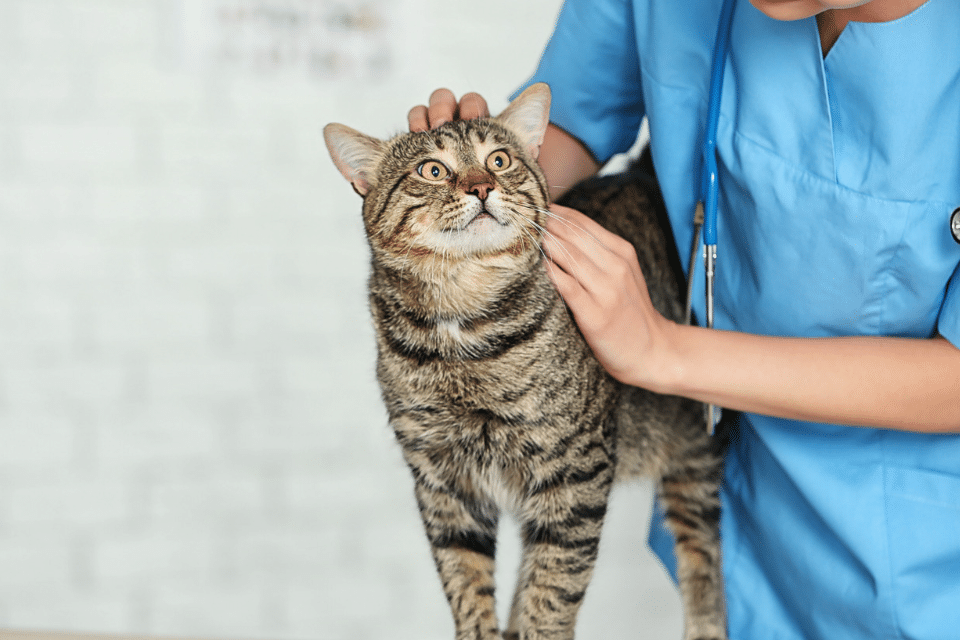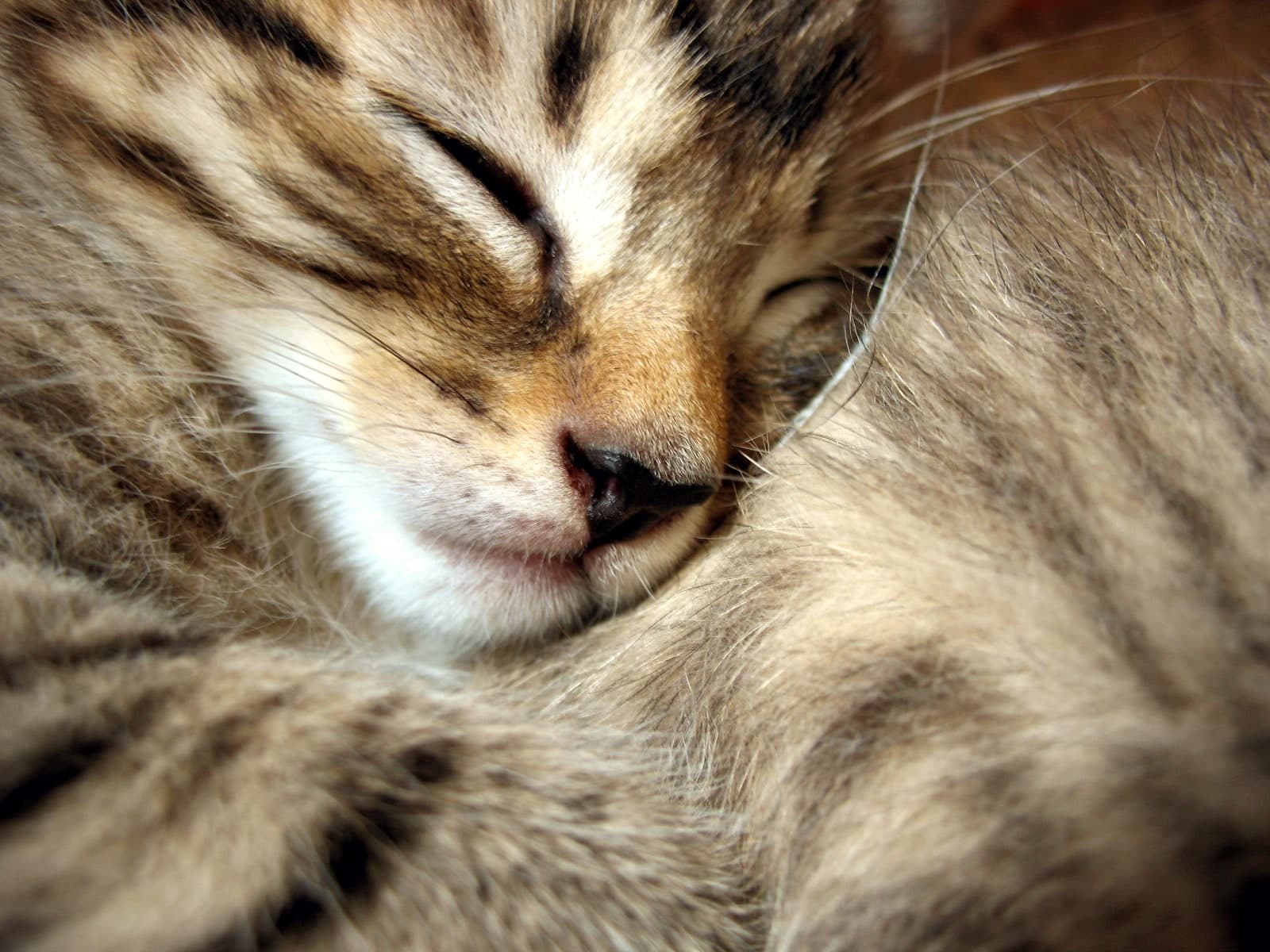
Cats, with their playful antics and soothing purrs, make for charming companions. Yet, these feline friends can sometimes face invisible battles against pesky allergens lurking in their environment or hidden in their meals. Identifying a cat with allergies might seem daunting, but understanding the subtle cues can be a game-changer. From the tell-tale signs of incessant scratching to the less obvious symptoms like chronic sneezing, allergies in cats manifest in myriad ways. This essay aims to unravel the complexities of feline allergies, guiding pet owners through recognizing the signs, obtaining accurate diagnoses, exploring treatment avenues, and implementing home care tactics that pave the way to relief and well-being for their beloved pets.
Identifying Cat Allergies
Sniffles and Scratches: Spotting Allergies in Your Furry Family Member
Hey there, fellow pet parents! It’s no secret that we consider our four-legged friends as part of the family. Just like us, our cuddly companions can suffer from allergies that can make them pretty uncomfortable. So, how can you tell if your pet is dealing with allergies? Let’s get down to the nitty-gritty and figure out how to spot those itchy signs!
First off, pay attention to their skin. If your pet is constantly scratching, biting, or licking itself, it might be more than just regular grooming. Allergies often cause skin irritation, making them itchy. Some pets even get red or inflamed skin or lose hair in places. If Fido or Whiskers is showing this behavior, it could be a clue that allergens are to blame.
Sniffles, sneezes, and watery eyes aren’t just people’s problems. Pets with allergies can show these symptoms too. If you see your furry friend sneezing more than usual or their eyes seem a little leaky, allergies might be the culprit.
And let’s not forget those pesky ear infections. Does it seem like you’re always at the vet’s office because your pet has another ear infection? This could be a sign of an allergic reaction, especially if they’re shaking their head or pawing at their ears a lot.
Here’s a curveball: Tummy troubles. Yes, allergies might also show up as digestive issues. If your pet has vomiting or diarrhea regularly, and you’ve ruled out other causes, it could be allergic reactions to their food.
Keep an eye out for the season too! Allergies can be seasonal, just like with humans. If you start to see these symptoms at a certain time of year, like spring or fall, pollen or mold may be the antagonist in your pet’s allergy showdown.
Now, dealing with allergies isn’t a one-size-fits-all situation. Pets, like people, can be allergic to a ton of different things, from fleas to food, or even the laundry detergent used on their favorite blankie. The best thing to do if you suspect allergies is to chat with a vet. They can run tests and help you pinpoint exactly what’s bugging your pet and how to help them feel better.
Remember, our pets can’t tell us when they’re feeling under the weather, so it’s up to us to be super sleuths and spot those telltale allergy signs. Keeping our furry family members happy and healthy is a top priority, and knowing the signs of allergies is just one more way to show them we care.
Testing and Diagnosis
Decoding Kitty Sneezes: Unveiling Your Cat’s Allergies
Cats are mysterious creatures, aren’t they? It seems like they have their own secret lives, thoughts, and even health issues that they try to keep to themselves. But as part of the family, these furry friends deserve the same care and attention to health as anyone else under the roof. When it comes to allergies, figuring out what’s bothering our whiskered companions requires some detective work and, of course, lots of love.
If a feline family member is showing signs of allergies, it’s our job to decode those sniffs and itches. Moving on from the obvious symptoms and the significance of vet visits, let’s talk about what to do next to help our purring pals.
Firstly, record everything. Yes, this sounds a bit like homework, but keeping a detailed diary of symptoms, behaviors, and potential triggers can be incredibly helpful to a vet. Note what kitty was doing, eating, or even lounging on before a sneeze attack or a scratch fest ensued.
Next step – start the elimination game, especially when it comes to food. It’s like those cooking shows where one ingredient is taken out each round, except here, it’s to see if symptoms improve without certain foods. Remember, this should be done under a vet’s guidance because no one wants a hungry, grumpy cat!
Also, let’s not forget about the environment – it’s not just about what’s in the food bowl. Think about new cleaning products, the type of litter in the box, or even a new rug. Try switching these out for hypoallergenic or unscented options and see if that soothes kitty’s sneezes.
Sometimes the vet might suggest allergy testing – a process where they determine the specific allergen causing the drama. This might involve blood tests or skin tests. While no one enjoys a trip to the doctor, it’s essential for narrowing down the culprit.
And of course, there’s treatment. Depending on the diagnosis, treatment could range from simple dietary changes to medication. Anti-allergy medicines can reduce symptoms, and in some cases, immunotherapy might be the recommended path, providing long-term relief.
Remember, avoiding allergens and managing symptoms can be a balancing act. It could take some time to get things just right, but with patience and careful observation, not only is a happier cat guaranteed, but also a worry-free home life for everyone involved.
Juggling a cat with allergies can be as tricky as herding … well, cats. But with the right steps and a heap of understanding, a sneezy kitty can go back to being a cozy lap warmer in no time. Follow these guidelines and stay tuned for the next article, where we’ll share more heartwarming tales and practical pointers from the world of pet parenting. Keep those litter boxes clean, and those kitties loved!

Treatment Options
Alright fellow cat-lovers, let’s dive into the nitty-gritty of how to help our purr-fect companions when allergies strike. It’s not fun for anyone when our feline friends aren’t feeling their best, especially when allergies come into play.
So, when the usual culprits of itching and sneezing crop up and a trip to the vet confirms it’s allergies, what’s next? The good news is there are various treatments available to help manage a cat’s allergies, so let’s explore these to ensure our furry family members can live comfortably.
-
First off, antihistamines can be a game-changer for allergic kitties. Just like for humans, these medications can control symptoms like itching, sneezing, and runny eyes. It’s important to remember that not all human antihistamines are safe for cats, so this is a prescription you’ll want to get directly from your veterinarian.
-
Next, corticosteroids might be on the roster if antihistamines aren’t cutting it. These powerful anti-inflammatory drugs can relieve severe itching and inflammation. However, they come with a need for careful management due to potential long-term side effects. Following the vet’s instructions to the letter is key with corticosteroids.
-
For those tiny, tummy troublemakers like food allergies, switching to hypoallergenic cat food can be the right move. This step often solves the mystery of the upset tummy, relieving digestive symptoms while providing your cat with a balanced diet.
-
Don’t forget those pesky parasites like fleas. If these little critters are the cause of your cat’s allergies, you’ll need to kick them to the curb with flea control treatments. Keep in mind, that it’s just as important to treat your home and any other pets to break the flea life cycle.
-
Sometimes, the environment is the culprit. Air purifiers and frequent cleaning can reduce airborne allergens, and let’s not overlook the power of a good bath. While not every cat will be a fan, washing your cat with a hypoallergenic or medicated shampoo as recommended by the vet can work wonders.
-
Finally, immunotherapy, which is a long-term treatment that exposes the cat to small amounts of allergens to build tolerance, may be an option. It’s a slow and steady process, typically reserved for severe cases and conducted under strict vet supervision.
Managing a cat’s allergies is a commitment, but it’s oh-so-worth-it to see them content and itch-free. The path might require a bit of trial and error, but with these treatments in the toolkit and lots of love, those pesky allergies can be conquered.
Remember, there’s a light at the end of the tunnel! With proper treatment, allergy symptoms can be controlled, paving the way for more snuggles and fewer sniffles. Here’s to healthy, happy cats and the humans who adore them!

Home Care and Management
Do you ever notice your feline friend pawing at their stuffy little nose or perhaps finding more clumps of fur than usual scattered around the house? As loving members of our family circuits, making sure our whiskered companions are healthy and comfortable is key! Let’s dive into some paws-itively helpful strategies to keep our cat’s allergies in check within the cozy confines of home sweet home.
First off, one of the unsung heroes in the fight against allergies is the humble air filter. Keeping the air clean is not only great for us but also for our cats who could be allergic to dust mites or pollen. A good air filter can make a world of difference, capturing those invisible troublemakers that may lead to itchy skin and sneezing fits.
Cats love snuggling into their favorite spots, don’t they? Regularly washing their bedding, and ours too, with a gentle, fragrance-free detergent can help lessen the reactions to allergens. And for our fabric-furnished homes, vacuuming at least weekly with a HEPA filter vacuum cleaner can pull those allergens right out of the cushions.
Now, here’s another nugget for thought—sometimes, what we bring into our homes can stir up allergens. Consider swapping out strong cleaning supplies and room fresheners for natural, unscented alternatives. Cats’ noses are much more sensitive than ours, and those citrusy, pine-fresh scents we enjoy could be kicking their allergies into high gear.
And let’s not forget, for our outdoor adventurers, wiping down their coat with a damp cloth after those exciting backyard expeditions can remove allergens they’ve proudly brought back with them. This can also be a purr-fect bonding moment – most cats enjoy a good, gentle wipe-down!
In all of this, remember that each cat is a unique furball with individual needs. Allergies can be as different as their personalities, so it might take some time to identify precisely what works best for your kitty. But rest assured, keep at it, and you’ll weave the perfect safety net of home-based solutions, ensuring those playful pounces and contented purrs aren’t interrupted by those pesky allergies.
Tending to a cat with allergies is just another chapter in the grand family storybook. While our whiskered pals might not be able to say it, the love and effort we pour into making their lives comfortable speaks volumes in every silent nuzzle and serene nap. Here’s to healthy, content kitties and the joy they sprinkle into our lives!

When to See the Vet
When Should You Take Your Cat to the Vet for Allergy Concerns?
Nothing makes a heart melt like the gentle purring of our feline friends. But when that soft furball starts to show signs of discomfort, every caring pet parent knows it’s time to tune in. While well-versed in the classic symptoms and remedies for cat allergies, sometimes the little critters may need extra help from the pros.
Knowing when to take a trip to the vet can be the key to relief for your meowing companion. Look lookout for out-of-the-ordinary behavior, such as a sudden lack of energy or a decrease in playful spirits. Cats can be notorious for hiding pain or discomfort, so when they start shying away from cuddles or their favorite high perch, an underlying allergy could be at play.
Unexpected weight changes warrant attention, too. A loss or gain in pounds without a change in diet might signal that those sneaky allergens are hindering their well-being. Also, keep an eye out for any behavioral adjustments – is your cat using the litter box differently, or perhaps meowing in a new tone?
If you’ve followed trusted steps like adjusting diets and keeping your home an allergen-low zone, but your kitty still seems in distress, a professional opinion is the next step. The vet might suggest further investigation, like a blood test or a specialized diet, to pin down the precise culprit causing your cat’s woes.
Remember, cats cherish routine, and allergies can toss a wrench into their predictable world. Scheduling a vet appointment when home care isn’t cutting it is not just a trip to the clinic; it’s a parent’s vow to restore peace to their beloved pet’s daily life.
The journey through managing cat allergies can indeed be paved with vet visits, meticulous home care, and lots of love. Once equipped with the right strategies and the support of a knowledgeable vet, those purrs will return stronger, promising calm, contented days ahead for your whiskered family member.

As silent sufferers, cats rely on the astuteness of their human counterparts to detect the whispers of discomfort that allergies bring about. Armed with insights from recognizing symptoms to managing home environments, dedicated owners can become the advocates their feline friends need. While allergies may pose a baffling challenge, understanding the cycles of testing, diagnosis, and treatments clears a path toward a healthier and more comfortable life for allergic cats. Remember, the vigilant eye of a caring pet owner and the expert care of a trusted veterinarian are the cornerstones of conquering the complexities of cat allergies, ensuring our graceful companions live their nine lives to the fullest.
Disclaimer: This article is intended for informational purposes only. It’s not meant to be a substitute for professional veterinary advice, diagnosis, or treatment. Always seek the advice of your veterinarian or other qualified health providers with any questions you may have regarding your pet’s health.



